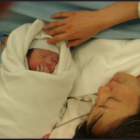Chemo’s Risks Outweigh Benefits For Some Breast Cancer Patients, Study Confirms
|
A new study—the largest of its kind—says that women who are diagnosed with the most common type of early-stage breast cancer most likely don’t need chemotherapy after they’ve had endocrine (hormone) therapy. The news could lay to rest some anguished conversations between doctors and patients. When a woman is diagnosed with breast cancer, all medical muscle goes toward eliminating the cancer and reducing the possibility of a recurrence. But for many women, chemotherapy can have disastrous results. This study says that if the additional treatment isn’t necessary—or has little measurable positive effect—many women can skip it.





